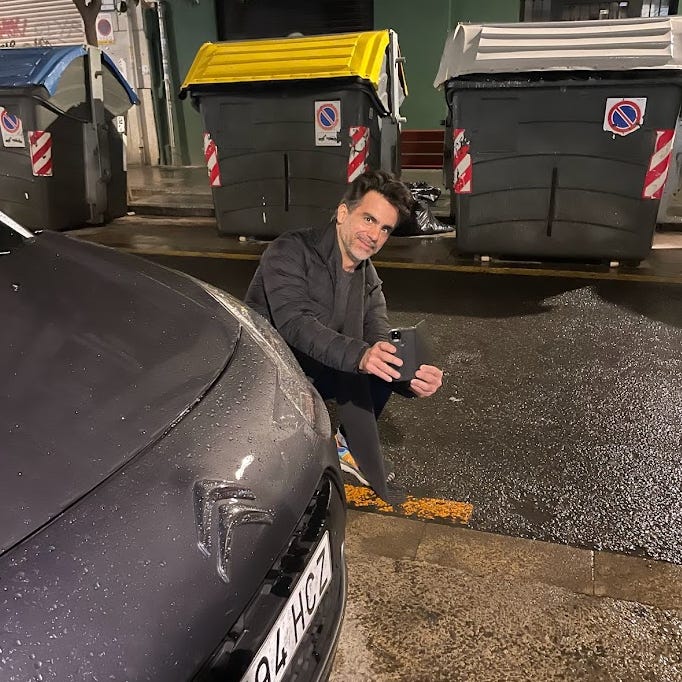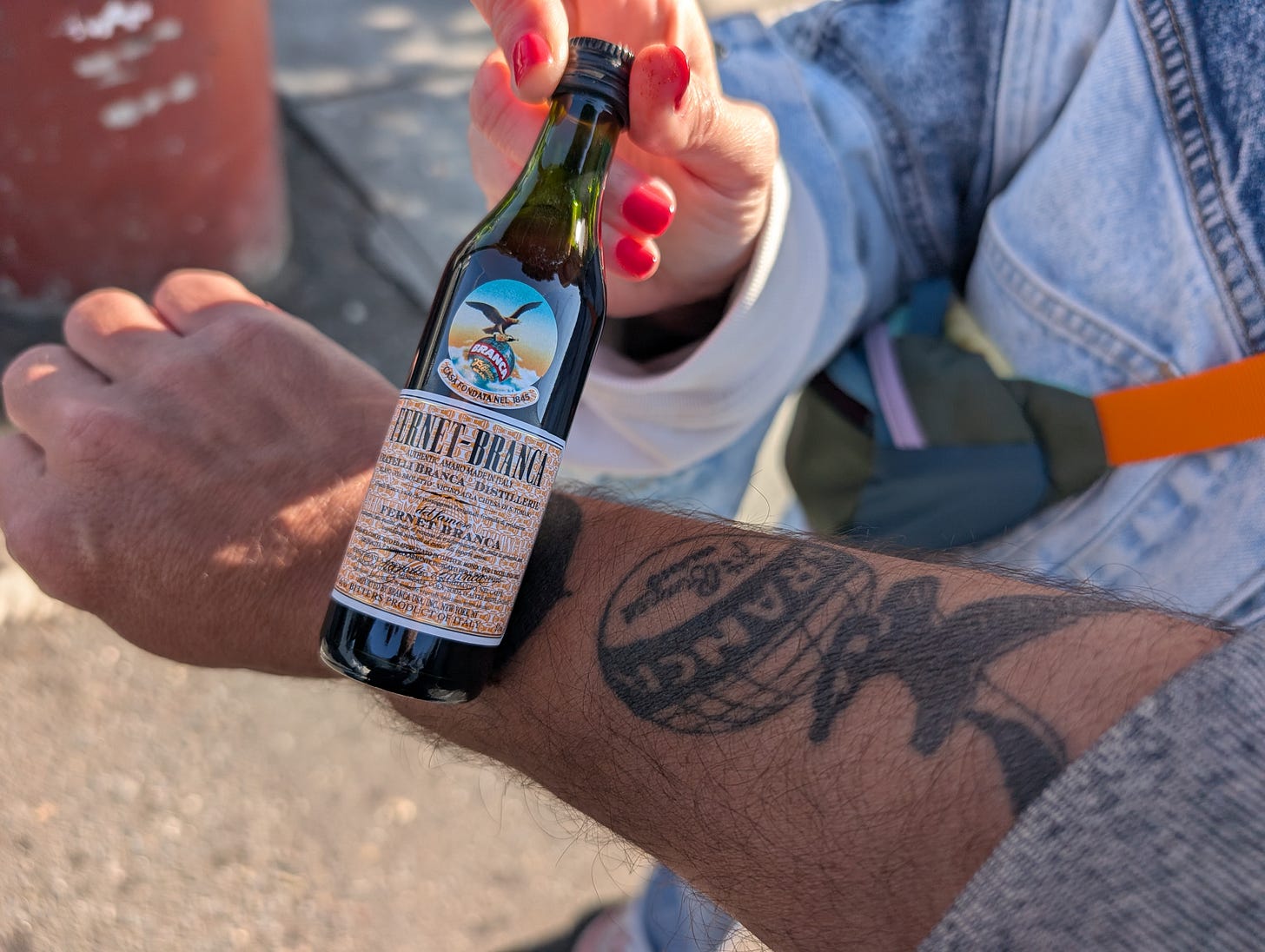Never Retire: You Can’t Age Well in a City That Keeps You Inside
Spain understands this. The U.S. doesn’t. That’s a problem.
Never Retire means different things to different people.
For me—
It’s not about never working or never taking a break. It’s about building a life you don’t need to escape. Where the day-to-day doesn’t grind you down, but pulls you forward. Where travel isn’t an escape from your life—it’s just a curiosity you get to indulge in because your life is already good.
Place and the street life it produces matters most in my ultimate Never Retire expression.
A vibrant public social life can keep you alive. Not literally, but in the more figurative sense during the time you spend living.
In a recent Medium article, I wrote about two places—San Francisco, California and Valencia, Spain—and how the cost of food and drink in these two cities creates a stark contrast between their public social lives.
Two elements of that article add to the way I see Never Retire within the context of how I want to live—how I am living—the second half of my life, which officially starts when I turn 50 this July.
In today’s Never Retire newsletter story, we discuss why these points matter so much.
If this resonates—if you're thinking hard about where and how you want to live as you get older—consider subscribing. I write about what it’s like to rebuild your life around daily quality of life, not just long-term plans.
From the Medium article—
You can’t separate food and drink from a city’s culture, vibe, and sustainability. From character and quality of life standpoints, they’re inextricably linked.
When the only people who can go out to eat and drink — even modestly on a somewhat regular basis — are of one economic class and (as it appears in San Francisco at least) a handful of ethnicities, you have a problem. In San Francisco. In Houston (sorry). Wherever.
The high-volume activities that keep public space vibrant and café and bar terraces alive at all hours of the day and night and help contribute to a city’s vibe and quality of life.
When you let them get so expensive that you only see a homogenized group of people participating, you have San Francisco.
When you keep them accessible, you see families with kids, adolescents, young adults, middle-aged people, and the elderly sharing the same public space, and you have Valencia. You have Spain.
As you might know, I am in San Francisco for my daughter’s college graduation.
She attended a super diverse university. Looking at the stage, it’s not a stretch to say that everybody and every place in the world was represented. The thought that the United States of America has an administration in place that is executing an all-out assault on this and related types of diversity turns my stomach more than it blows my mind.
It’s sad, pathetic and mean, not to mention an economically-boneheaded move.
The Spanish government is literally doing the opposite of the US on just about anything that involves diversity and its direct offshoots such as immigration, as Spain emerges as the true land of opportunity on our planet.
Seeing the representation on that stage reminds you of the nasty misguidedness of this American regime.
Diversity drives economies. It creates interesting places. Strong and diverse economies and places inspire people—all types of people—to go out and do cool shit.
Cool shit happens because of places like Silicon Valley (despite my criticism of tech culture), Harvard and other universities, and—just as, if not more important—the stuff that happens on the ground, at the local level, in small businesses, co-working spaces, and other places of creative innovation and inspiration that exist in cities around the world.
A similar dynamic exists at the city and neighborhood scale. Diverse cities and neighborhoods create interesting, exciting, and inspirational places. They drive economies and provide opportunity that should be legislated as widely accessible.
You can feel the difference on the streets when a society appreciates and encourages diversity rather than stifling and even criminalizing and penalizing it. You can't have this diversity—or, at least, it doesn't grow and prosper—without a vibrant and affordable public life. The second ingredient of the Never Retire expression we're continuing to build out today.
Creating conditions for social interaction, engagement and, subsequently, sense of community doesn’t happen by accident. It’s driven by culture and society’s recognition that place — and affordable gathering places — matter.
Spain gets this. Valencia gets this.
The former land of opportunity and San Francisco’s cookie cutter tech culture doesn’t.
A vibrant public social life is a quality of life element—for everyone, but particularly older people—that the United States has all but ignored.
Watching my Dad effectively confined to the house—in relatively good physical health as a 90-year old—because he can’t drive illustrates this reality. Picturing the life he could have in any number of European (and other world) cities versus the life he has living in the car culture that define, degrades, and helps destroy American public life glaringly highlights the differences between Spain and the US that matter.
This is the stuff that should be central to conversations about aging, public policy, and the future of cities—not an afterthought, not a luxury, but the baseline.
And it’s not just policy or infrastructure. It’s culture. It’s mindset. It’s whether we view aging as a stage to isolate or a phase to engage.
Spain gets it. Valencia proves it. The buzz of daily life—on the street, at the café, in the plaza—invites and pulls you in, no matter your age. It doesn’t ask if you’re still productive. It makes you feel like you still belong.
That’s Never Retire. And that’s what I’m building the rest of my life around.
I’m not selling a dream—I’m documenting a shift.
If you’re thinking seriously about how you want to spend the second half of your life, subscribe to Never Retire. It’s not about dropping out. It’s about opting in—to the kind of life that pulls you forward.
Making the best of our spare time in San Francisco, the Fernet capital of North America.




I agree with you on the need for an environment where folks of all ages can get out and mingle, and without a car